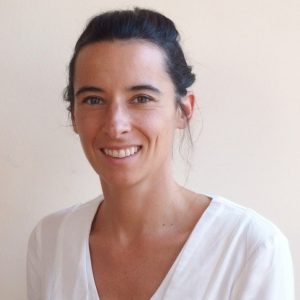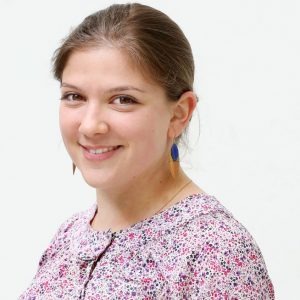May 7, 2018
By: Noémi Manco and Valérie Paulet
They work from the Netherlands, Denmark or the United Kingdom, but they deal with mass crimes occurring on the other side of the world – in Syria, Rwanda or Nepal. “They” are the prosecutors in the war crimes units (WCUs). These highly specialized professionals are tasked with bringing to justice war criminals present on European soil, regardless of where their alleged crimes were committed. We met with these dedicated individuals who, in challenging circumstances and through endless legal complexities, seek justice for the most severe crimes.
It’s 9:00 am in Rotterdam (the Netherlands) and Prosecutor Nicole Vogelenzang arrives at her office. “These days, we are working around the clock” she smiles. Her team at the Dutch Public Prosecution Service is in the middle of a case against an Ethiopian national accused of war crimes and torture. The accused is a foreigner and the crimes occurred on another continent. Yet, the trial is taking place in Europe – thanks to universal jurisdiction (UJ).
According to this principle, states have to prosecute criminals present on their territory, regardless of where the crimes took place or the nationality of the perpetrators or of the victims.
“This is a groundbreaking principle”, explains Valérie Paulet, legal advisor and expert on universal jurisdiction. “Traditionally, a state must have a strong link with the alleged crime to be able to prosecute it. Universal jurisdiction is an exception to that rule, based on the idea that some crimes constitute an offense to all humankind, so all humankind must fight them.”
Migrating criminals, borderless justice
WCUs were founded in answer to an increasingly permeable world, where alleged criminals can escape justice by moving to another country – an increasingly likely scenario with the recent influx of migrants from war zones.
“In the years 2000, the Danish immigration services flagged some asylum seekers present on our soil as suspects of mass crimes”, recalls Prosecutor Jakob Willaredt (Denmark). “As such they were not entitled to refugee status, but could not be sent back either, because their country was at war. What could we do with them? The only solution left was to try them in Denmark.”
A similar situation arose for example in 2016 in Switzerland, when a former Gambian minister was arrested at the immigration center of Lyss (canton of Bern), where he had filed for asylum. “It was a situation out of a movie: this man, who may have overseen the torture of countless Gambians under Yahya Jammeh’s dictatorship, was right here in Switzerland where he could be prosecuted. We raced against the clock to investigate and denounce the case to the Swiss authorities, in case he got wind of our work and fled beyond our reach”, says Benedict De Moerloose, head of the Investigations and Criminal Law Department at TRIAL International.
At the core of WCUs is the idea that justice, in the 21st century, is borderless. In an unprecedented movement, some states are committing resources to making the fight against impunity a truly global one.
A legal path riddled with political hurdles
However, the picture is far from rosy for prosecutors in WCUs, and political considerations sometimes weigh heavily on their work. Cooperation with the countries where the crimes occurred can be protracted, complex and difficult. “The crimes happened abroad, so what we can and cannot do is entirely in the hands of the local authorities”, explains Prosecutor Jakob Willaredt (Denmark). “Our domestic police cannot go and investigate independently; everything is done by mutual legal assistance.”
And there are no means to coerce a state unwilling to cooperate. International obligations weigh little in this game. “In a case against the former Army General Kumar Lama, Nepal never allowed us to enter the country even though, as a signatory to the Convention against Torture, it was under obligation to do so”, notes Tom Halpin, the lawyer in the Lama case in the United Kingdom.
Other times, the state where the crimes were committed cannot offer help because they are in the midst of a crisis. Syria and Iraq are obvious examples.
Thankfully, mutual legal assistance sometimes blossoms into successful collaborations, and the cases can move forward. In a case against a Ugandan warlord, the Danish WCU found a prize ally in the Ugandan government. Prosecutor Jakob Willaredt remembers: “We made our request for assistance through our Embassy in Kampala, and they were immediately willing to help. They shared with us results of a previous investigation they had conducted. They gave us access to the evidence that they had. When victims were heard in a Ugandan court, the judge allowed us to bring the transcript back to Denmark.”
Building understanding and relatability
Work involving distant and foreign settings also presents less obvious difficulties. Tom Halpin (UK) highlights how discrepancies in criminal justice systems can play a dramatic role: “In the case against General Kumar Lama, some of the evidence we presented did not hold in court, because it was gathered by Nepali partners in accordance with local standards, not British ones – which are significantly higher.”
Likewise, it can be highly challenging for victims and witnesses to testify in alien surroundings, which may compound the trauma many of them still suffer years after the events.
Yet, their testimonies are invaluable for the prosecution. Most people in the courtroom have never set foot in the country where the crime occurred, so the human element is key to building understanding and relatability. “Victims’ testimonies are often a highlight of the trials”, reports Prosecutor Nicole Vogelenzang (the Netherlands). “Their narration is so powerful, it usually makes an impression on the Court.”
Equally important to the court’s understanding is travelling to the country in question. In a case against a suspected Rwandan genocidaire, the Swedish WCU conducted six field missions “to really see what the village looks like, how Rwanda is so hilly you can actually see from one hill to the other… you need to be on the ground to understand the crime scene.”
Unfortunately, such trips require time and funds, and are not always possible for all WCUs. “To my knowledge, the Swiss WCU has never investigated on the ground”, laments Benedict de Moerloose (Switzerland). “It is frustrating, because some of their cases are set in relatively safe countries.”
Driven to the core
At 8pm, Prosecutor Nicole Vogelenzang (The Netherlands) leaves her office. Tomorrow will be another intensive day in court for the Ethiopian case. “This job keeps you on your feet. I have learned more in 3 years at the WCU than in 10 years working as a public prosecutor.”
Does the scale and gravity of the crimes sometimes take its toll? Prosecutor Jakob Willaredt (Denmark) highlights: “There are hideous crimes in national jurisdiction as well.”
Teamwork is nevertheless essential to withstand the pressure, acknowledges Prosecutor Hanna Lemoine (Sweden): “You need to trust your team to navigate this job. Not only for the workload and the stress, but it is also psychologically heavy. When a sensitive case goes on for years, a professional approach is essential. You need to reenergize.”
She concludes: “Investigating international crimes really gives you a perspective on your own life. The victims’ testimonies, in particular, show the remarkable strength we humans have, and what we can survive.”
This article was previously published by TRIAL International in “Make way for Justice #4: Momentum towards accountability“, Universal Jurisdiction Annual Review 2018. TRIAL International is a non-governmental organization fighting impunity for international crimes and supporting victims in their quest for justice.
About the Authors
 Valérie Paulet is a Legal Consultant at TRIAL International, and became the coordinator of Trial Watch from August 2015. A qualified lawyer in France, she specialized in international criminal law and international humanitarian law. Previously, she worked in William Bourdon’s law firm in Paris, where she was in charge of universal jurisdiction cases, and at the United Nations international criminal tribunals.
Valérie Paulet is a Legal Consultant at TRIAL International, and became the coordinator of Trial Watch from August 2015. A qualified lawyer in France, she specialized in international criminal law and international humanitarian law. Previously, she worked in William Bourdon’s law firm in Paris, where she was in charge of universal jurisdiction cases, and at the United Nations international criminal tribunals.
 Noémi Manco is a Communications Officer at TRIAL International. Before that, she worked as a communications and campaigns officer at Ordre de Malte France in Paris (France), and interned at the Coalition for the International Criminal Court, Redress and Amnesty International.
Noémi Manco is a Communications Officer at TRIAL International. Before that, she worked as a communications and campaigns officer at Ordre de Malte France in Paris (France), and interned at the Coalition for the International Criminal Court, Redress and Amnesty International.